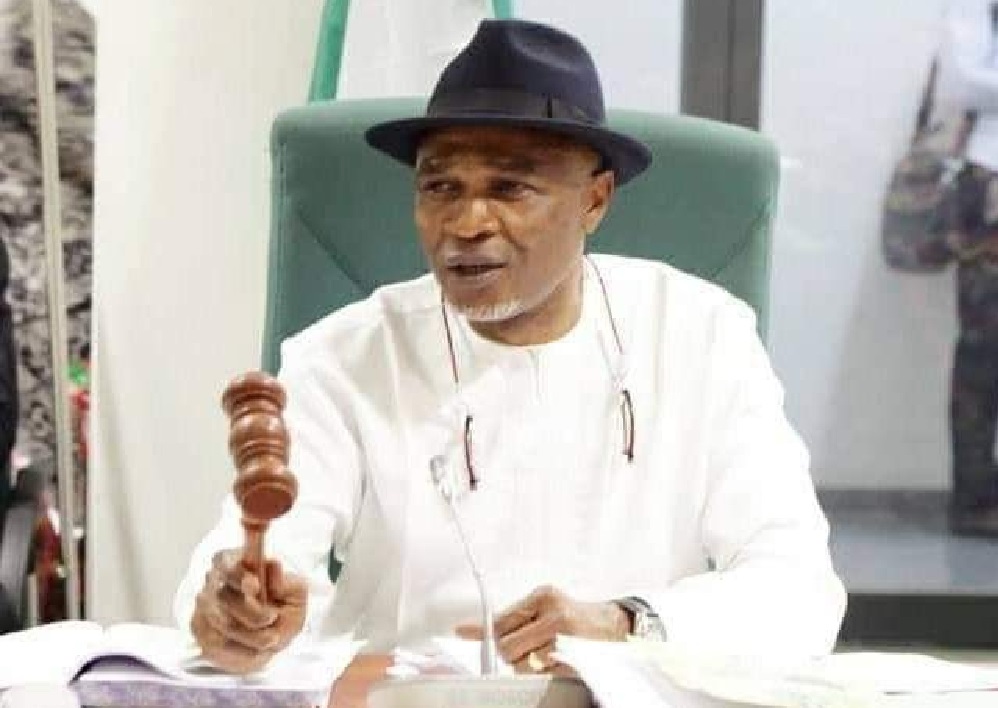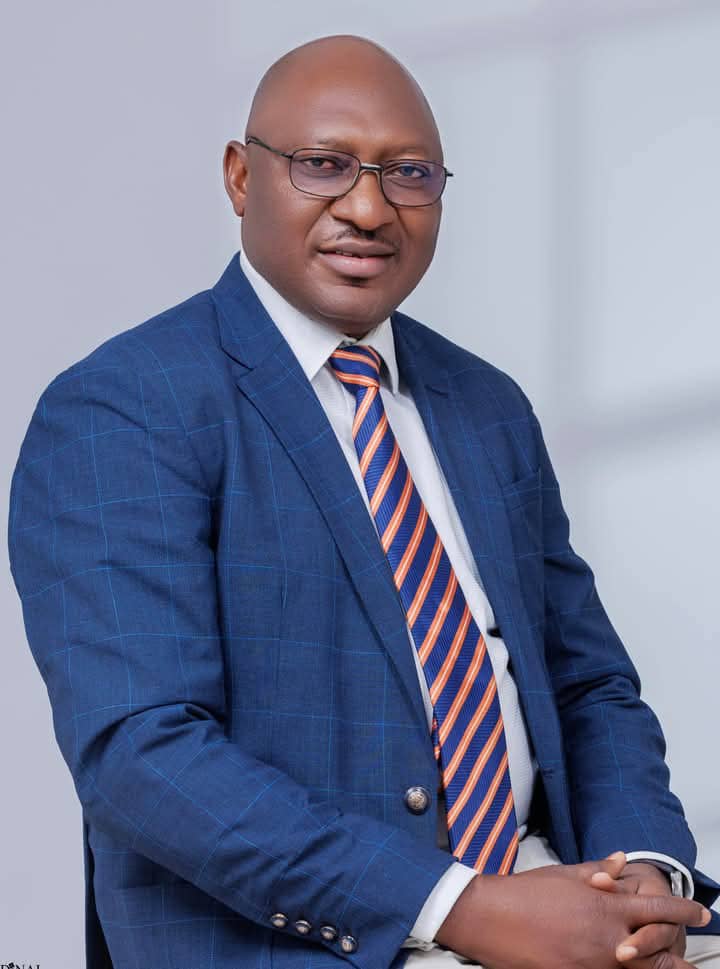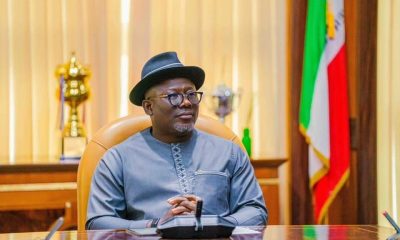Opinion
SUNNY SIDE OF OBIO/AKPOR

BY BOLAJI AFOLABI.
One’s birth place and early exposure privileged one with early interaction with music, drama, arts, and other genres of entertainment. The title of this piece is inspired by a must-watch; now rested programme on the network service of Nigerian Television Authority, (NTA): “Sunny Side of Life.” The very popular programme which was created, produced, and presented by Patrick Ityogeh in the late ’80s to early ’90s was a pot-pourri of music, society, interviews, and lifestyles. Ityogeh, an iconic infotainment cognoscente, who later became the chief executive officer of the television conglomerate during General Sani Abacha’s regime, held millions of viewers spellbound with his limpid delivery. The Benue-born, extremely skilled ranconteur was always lively, lovely, and hearty on the show. Initially criticized and vilified as elitist, it became the favorite of many people such that it became one of the “most watched” by viewers across Nigeria.
The legislature embarks on a seven to eight week yearly vacation, usually from July ending to mid or late September. Like Ityogeh and the NTA, the yearly ritual has become controversial. Due, perhaps to the palpable integrity deficit of the parliament in the eyes of many, the general perception is that the vacation is not justifiable. The explanation by lawmakers that it is a global practice where they engage with their constituents and prosecute schemes in capacity building, trainings, and exchanges with their counterparts around the world, never sounds convincing. People have continued to put down any defence by the lawmakers describing such as “tales by moonlight.”
From empirical studies, observations and reports one can safely confirm that the people and legislature are both correct after all. Given the flagrant display of opulence by some lawmakers, it is right for people to profile them as insensitive in their parade of opulence. Such negative descriptions, however, may culminate in misconceptions by the parliamentarians and their constituents. Perhaps, unknown to many, a sizeable percentage do not fit into the category of covetous, wasteful and vain-seeking lawmakers. For this small-set of legislators, the yearly vacation is devoted largely to personal development and career progression. It is a time for deeper interactions with constituents, projects monitoring and evaluation, as well as preparing for resumption of legislative duties. It is not out of place to see this group of lawmakers in and around Abuja, other cities, and within their respective catchments. True, some congressmen embark on brief holidays, they turn around in a jiffy to impact on those who enthroned them by the ballot.
The people of Obio/Akpor federal constituency in Rivers State must count themselves blessed with the kind of representative they have. Variously described as one of the “egg-heads,” “leading-lights” and “bright stars” of the House, Kingsley Chinda has over the years elevated representation to greater heights. Driven by passion for constituency development, he is one lawmaker that seldom “jets away” during the yearly vacation. Martin Chukwubem, a constituent based in Abuja confirmed that, “unlike many of his colleagues that have gone abroad on holidays, he is in the country. He shuttles between Abuja and Port Harcourt addressing issues of development and empowerment.” For Beatrice Dike, “through his ‘I Win, You Win” and ‘I Will Not Only Give You Fish But Teach You How To Fish’ slogans, he has impacted on many of us.”
Recently, while on a short visit to Port Harcourt, the writer combed Obio/Akpor, to ascertain the veracity of these claims, and “see for myself” how the fourth-term legislator is impacting on his people. Fact is, the imprimatur of Chinda is eloquently described, and visible in the entire 17 wards that make up the one-local government area federal constituency. In breaking the cycle of dependence, some constituents, youths, women and men are presently undergoing a three-month training programme which seeks to lead to develop their entrepreneurial capacities. The participants commenced trainings on fashion designing, hair cutting, hair dressing, and interior decoration on August 23, 2024, at *Emeka Town Hall,* Elelenwo, Port Harcourt.
In his determination to empower the next generation of entrepreneurs, selected youths are being trained through the *OK Chinda Youth AgricBusiness & Food Security Initiative, (OYAFSI).* After the intensive training at the Zubara Farm facilities in Elelenwo, which commenced on August 5, 2024, each participant will be given structured lease of two plots of land to establish their own agricultural ventures. They are also guaranteed the offtake of unsold products to minimize losses. It is expected that the young farmers will leverage on the huge potentials of the communities in fishing, and other sub-sectors of aquaculture and agriculture. Also, the success of the programme will create a winning future for the youths in agricbusiness.
To unlock a brighter future for youths by exploring new horizons and unleashing their respective potentials, a comprehensive digital skills and artificial intelligence (AI) training programme was organised. Participants were introduced, and imparted with veritable knowledge about the basics, functions, and benefits of the new technology. One of the participants at the Odikirike Town Hall, Elelenwo venue of the training, Nene Bright confessed that, “it was an eye-opening, and life-revealing experience for me and many others.” Similarly, Akelachi Believe declared that, “with my knowledge and experience of information technology, I only realized that there are still more grounds to cover just as many opportunities for empowerment and development.”
Realizing the need for medical mitigation of constituents amid growing health challenges, an outreach took place between late July, stretching into the early days of August at the Community Boys Secondary School, Elelenwo. People from various communities benefitted from the health initiative. Medical services included free surgery for few recommended cases; free eye testing; free recommended glasses; tests and provision of drugs for malaria, typhoid, and other common ailments; distribution of kits for Blood Pressure (BP) & Sugar Level. While commending the medical support service, Mrs. Philomena Chinwe said, “the organisers have touched people in the best way….showing concern and support to the health needs of people is the only practical way to show you care for the people.” Another beneficiary, Ms. Georgina ThankGod declared that, “many people were attended to, there was no discrimination. I hope the initiator will make it more regular, maybe twice or three times in a year.” For Chief Alphonsus Eze, “this is far better than sharing money, this is directly addressing the health challenges of people.”
Obio/Akpor has also profited from other empowerment projects and development initiatives that have either being concluded or are in progress. These include vocational skills development programmes; entrepreneurial programmes and education intervention initiatives. According to a youth leader, Stephen Chidera “there are stories that more of these programmes and projects will be rolled out throughout the summer break, and it will continue till the end of year. We are very excited about what is happening here.” For Bright Wodi John, “it is a thing of joy that while people from other communities are complaining about absentee representatives, our case is different. We pray that more of these will come to our communities.”
The people of Obio/Akpor are experiencing the sunny side of career-pathfinding, life-changing, and destiny-redefining interventions through empowerment initiatives, and impactful community development. They are therefore unanimous in confessing that Kingsley Chinda has done well. That the people have collectively invested their electoral franchise on him for a record fourth term speaks volumes about his acceptance and performances. Let us hope he wouldn’t step on the brakes or dilly-dally in continually improving the well-being of his constituents and attracting further development to the constituency.
*BOLAJI AFOLABI, a development communications specialist, was with the Office of Public Affairs in The Presidency.*
Opinion
CBN leads financial dialogue with JP Morgan, NGX, others, in pre-spring meetings Forum

By Dr. Ibrahim Modibbo
In anticipation of the International Monetary Fund (IMF) and World Bank Group (WBG) Spring meetings which commenced on Monday, April 21, 2025, the Central Bank of Nigeria (CBN) partnered with J.P. Morgan, the Nigerian Exchange Group (NGX) and Africa Private Capital Association (AVCA) to host a high-profile global forum at Nasdaq MarketSite in New York on Thursday, April 17, 2025, according to press statement by Dr Ibrahim Moddibo.
The forum, titled “The Nigeria Investment Agenda: Pathways for Growth & Global Partnerships,” convened global investors, diaspora leaders, and senior financial stakeholders to examine Nigeria’s macroeconomic prospects and ongoing reform progress.During his commanding address, Governor Olayemi Cardoso outlined his comprehensive reform strategy encompassing monetary tightening, foreign exchange market transparency, and enhanced financial governance.
He emphasized that these initiatives are establishing the foundation for sustainable macroeconomic stability and heralding a new era of transparency and confidence.Governor Cardoso reaffirmed the CBN’s unwavering commitment to rebuilding credibility through orthodox monetary policy, transparency, and consistency.
“We inherited a crisis of confidence but chose a different path. We’re not turning back,” he stated decisively.In a powerful fireside chat between the Governor and Nobel Prize-winning economist Dr. James Robinson, Reverend Richard L. Pearson Professor at the University of Chicago, Governor Cardoso elaborated on his vision to reestablish the CBN as a credible, trusted institution – rooted in domestic excellence and respected internationally.Mr. Muhammad Sani Abdullahi, Deputy Governor for Economic Policy at the CBN, delivered a macroeconomic update highlighting sharp increases in foreign exchange turnover, emerging signs of disinflation, and strengthening external reserves. “With a market-determined exchange rate and a transparent, rules-based policy framework, confidence is gradually being restored in Nigeria’s economy,” he noted.
Welcoming participants to the forum, Dr. Nkiru Balonwu, Adviser to the CBN Governor on Stakeholder Engagement and Strategic Communication, framed the forum as a key moment in the Bank’s broader engagement strategy. “Today is more than a conversation,” she noted.
It’s about opening the books on the CBN’s transformation story under Governor Cardoso – sharing the facts, interrogating the progress, and looking ahead together at what more can be done to build sustainable partnerships and unlock long-term capital,” she explained.
Another key highlight of the event was the panel discussion entitled “Repricing Nigeria: Assessing the Scope for Sustained Change.” Moderated by Gavin Serkin, Founder of New Markets Media & Intelligence, the panel featured global financial luminaries: Joyce Chang, Chair of Global Research at JPMorgan Chase; Jason Rekate, Global Co-Head of Corporate Banking at Citi; Razia Khan, Chief Economist for Africa & Middle East at Standard Chartered; and Ahmad Zuaiter, Co-Founder & CIO of Jadara Capital Partners. Each panelist provided expert perspectives on Nigeria’s investment landscape, noting renewed international interest driven by improved fundamentals, strengthened governance, and clearer policy direction.
The CBN Board and Monetary Policy Committee were represented by US-based diaspora members Mr. Robert Agbede, Prof. Melvin Ayogu, and Dr. Aloysius Ordu, underscoring the Bank’s global engagement and commitment to leveraging Nigerian talent worldwide. Temi Popoola, Group CEO of NGX, moderated the Q&A session, while Dr. Olubukola Akinniyi Akinwunmi, Director of Banking Supervision at CBN, delivered the closing remarks.The forum focused on substantive discussions and future prospects: engaging critical voices, evaluating progress, and identifying requirements for building lasting partnerships and attracting long-term capital. Central to this endeavor is a clear objective: reestablishing the CBN as a credible, trusted institution respected globally and dedicated to excellence at home.
Dr. Ibrahim Modibbo, a public affairs analyst writes from Abuja.
Opinion
Instagram , WhatsApp troubled by antitrust laws

By Sonny Aragba-Akpore
While we are yet to grapple with the fate of Tik Tok which President Donald Trump had asked its parent company Byte Dance of China to divest from it’s American operations or be banned, Meta Group, owners of Instagram and WhatsApp, is troubled over antitrust concerns.
The U.S. Federal Trade Commission (FTC) has taken the group to court over anti competition issues.
Specifically, the FTC wants Meta to divest from its two biggest companies in an antitrust trial that could redefine the future of social media.
And so Meta’s world is troubled as Mark Zuckerberg’s company could be forced to sell Instagram and WhatsApp if it loses the lawsuit that has just begun in the U.S.
The FTC has accused Zuckerberg’s company of having bought both platforms to eliminate competition and maintain a monopoly on social media.
If the court rules against them, it would be a historic blow to the tech giant.
Zuckerberg acquired Instagram in 2012, and then, two years later,(2014) completed his trio by buying WhatsApp.
Facebook is the third leg of the trio and this easily makes the group the largest tech owner in the world.
Although these acquisitions were approved by the FTC itself at that time ,but now this lawsuit seeks to reverse that approval, arguing that the purchase was not for innovation but to “neutralize” emerging rivals like Instagram which was acquired in 2012 and thus take control of the entire market.
The FTC claims that Meta has used its financial muscle to block competition, buying up emerging apps instead of competing with them, and it has been doing this since 2008! Everything is based on 2012 emails where Zuckerberg had expressed concern about Instagram’s rapid growth compared to Facebook’s performance (which was his only app at the time). In those emails, Zuckerberg admitted it was better to buy than to compete. And so he did, acquiring the app years later.
“On the other hand, he also bought WhatsApp, and of course that reinforces the FTC’s accusation. Meta strengthened its control over the digital system, keeping these apps as separate platforms but under the same power structure” analysts reason.
Meta has not denied the purchases, even though it rejects having acted in an anti-competitive way, calling the case a “weak lawsuit that ignores reality,” since they believe they face strong competition from platforms like TikTok, YouTube or X among many other apps.
During the trial, Zuckerberg claimed he bought Instagram for its camera technology, not because the social network was on the rise, but the 2012 messages don’t seem to support that statement very well.
In the likelihood that FTC wins this case, Meta could be forced to sell Instagram, WhatsApp, or both. This wouldn’t necessarily mean an immediate change for users, but it would shift the balance in the digital market, according to experts.
Digital sociologists think that Meta would make it easier to regulate social networks individually by the FTC.
One of the major implications will be on things like content moderation, privacy, or the use of personal data.
“If it gets split, it would be easier for lawmakers, ensuring proper service to users” digital sociologists admit.
There are however fears of who buys if it gets to that .
For instance If a controversial figure like Elon Musk or an investment fund takes control of Instagram, like what happened with Twitter (now X), it’s possible that many users would leave in large numbers for new alternatives that may emerge, like BlueSky.
“But if it falls into the hands of a discreet company, without major visible changes, it’s likely that most people will keep using it as they always have.”
Although Meta does not reveal exactly how much it earns from each app, it is estimated that Instagram generates around $37 million a year, surpassing Facebook’s revenue according to analysts.
“So of course, Zuckerberg’s eagerness to get out of this case is clear: they can’t afford to lose that income because it would be a catastrophe for Meta” another analyst submits.
The expectations are dicey because the court’s decision will not only affect Meta, but could also open the door to more lawsuits against other big platforms for similar monopoly practices. And at a time when the control of social networks is more questioned than ever, this case could define the future of the digital system in terms of free choice and regulations.
Instagram and WhatsApp which were acquired over a decade ago have become social powerhouses and easily the biggest platforms in that genre.
This looming antitrust trial will be the first big test of President Trump’s Federal Trade Commission’s ability to challenge Big Tech.
The lawsuit was first filed against Meta — then called Facebook — in 2020, during Trump’s first term. It claims the company bought Instagram and WhatsApp to squash competition and establish an illegal monopoly in the social media market.
FTC contends that Meta has maintained a monopoly by pursuing CEO Zuckerberg’s strategy, “expressed in 2008: ‘It is better to buy than compete.’ True to that maxim, Facebook has systematically tracked potential rivals and acquired companies that it viewed as serious competitive threats.”
U.S. antitrust laws are enforced by both the FTC’s Bureau of Competition and the Antitrust Division of the Department of Justice. The agencies consult before opening any investigation. The Antitrust Division handles all criminal antitrust enforcement.
The FTC,s Bureau of Competition enforces the nation’s antitrust laws, which form the foundation of a free market economy.
The antitrust laws promote the interests of consumers; they support unfettered markets and result in lower prices and more choices.
The Federal Trade Commission Act and the Clayton Act, both passed by Congress in 1914, give the Commission authority to enforce the antitrust laws.
These laws prohibit anticompetitive mergers and business practices that seek to prevent hard-driving competition, such as monopolistic conduct, attempts to monopolize, and conspiracies in restraint of trade.
The Bureau of Competition investigates potential law violations and seeks legal remedies in federal court or before the FTC’s administrative law judges. The Bureau also serves as a resource for policy makers on competition issues, and works closely with foreign competition agencies to promote sound and consistent outcomes in the international arena.
WhatsApp (officially WhatsApp Messenger) is an American social media, instant messaging (IM), and voice-over-IP (VoIP) service owned by technology conglomerate Meta. It allows users to send text, voice messages and video messages, make voice and video calls, and share images, documents, user locations, and other content.
WhatsApp’s client application runs on mobile devices, and can be accessed from computers.
The service requires a cellular mobile telephone number to sign up.
In January 2018, WhatsApp released a standalone business app called WhatsApp Business which can communicate with the standard WhatsApp client.
The service was created by WhatsApp Inc. of Mountain View, California, which was acquired by Facebook in February 2014 for approximately US$19.3 billion.
It became the world’s most popular messaging application by 2015,and had more than two billion users worldwide by February 2020,confirmed four years later by 200 million new registrations per month.
By 2016, it had become the primary means of Internet communication in regions including the Americas, the Indian subcontinent, and large parts of Europe and Africa.
Instagram is an American photo and short-form video sharing social networking service owned by Meta Platforms. It allows users to upload media that can be edited with filters, be organized by hashtags, and be associated with a location via geographical tagging.
Posts can be shared publicly or with preapproved followers. Users can browse other users’ content by tags and locations, view trending content, like photos, and follow other users to add their content to a personal feed.
A Meta-operated image-centric social media platform, it is available on iOS, Android, Windows 10, and the web. Users can take photos and edit them using built-in filters and other tools, then share them on other social media platforms like Facebook.
It supports 32 languages including English, Hindi, Spanish, French, Korean, and Japanese.
Instagram was originally distinguished by allowing content to be framed only in a square aspect ratio of 640 pixels to match the display width of the iPhone at the time.
In 2015, this restriction was eased with an increase to 1080 pixels. It also added messaging features, the ability to include multiple images or videos in a single post, and a Stories feature—similar to its main competitor, Snapchat, which allowed users to post their content to a sequential feed, with each post accessible to others for 24 hours.
As of January 2019, Stories were used by 500 million people daily.
Instagram was launched for iOS in October 2010 by Kevin Systrom and Mike Krieger. It rapidly gained popularity, reaching one million registered users in two months, 10 million in a year, and one billion in June 2018.
In April 2012, Facebook acquired the service for approximately US$1 billion in cash and stock. The Android version of Instagram was released in April 2012, followed by a feature-limited desktop interface in November 2012, a Fire OS app in June 2014, and an app for Windows 10 in October 2016.
Although often admired for its success and influence, Instagram has also been criticized for negatively affecting teens’ mental health, its policy and interface changes, its alleged censorship, and illegal and inappropriate content uploaded by users.
Opinion
Hon. Prof Nnamchi’s Low Social Media Presence Doesn’t Define His Output- A Reply To X User’s Observation

By Titus Agbo
A user on X, formerly Twitter, named Mechelito@Onyema_7, claimed that Hon. Professor Paul Sunday Nnamchi, the member representing of Enugu East/Isi Uzo Federal Constituency in the House of Representatives doesn’t post about the insecurity issues in Eha-Amufu and his efforts to impact his constituents on his X handle, @sunday_nnamchi. The user supported his claim with a screenshot of Nnamchi’s X account page.
However, it’s worth noting that Professor Nnamchi’s low online presence doesn’t necessarily reflect his efforts and output. He was raised by Catholic priests and has a humble disposition. Before venturing into politics, he was involved in humanism, providing free computer training to students in his local government area, Enugu East. This initiative, which aims to expose students to information and communication technology (ICT) education, has trained over 2,000 students as he has since expanded it to accommodate his constituents from Isi Uzo immediately he was elected into the National Assembly.
# Key Achievements
-Scholarships*: Nnamchi has offered scholarships to hundreds of indigent students from various communities within the constituency, including non-indigenes residing in Enugu East/Isi Uzo. Sewed school uniforms for pupils in primary schools and facilitated employments for a few constituents.
– *Infrastructure Development*: He deployed ₦300 million worth of solar-powered streetlights to communities in Enugu East Local Government Area last year and plans to replicate same in Isi Uzo this 2025.
– *Education and Healthcare*: Nnamchi has built and renovated classroom blocks, provided medical outreach programs, and offered free medical treatments and medications to constituents who couldn’t afford them.
– *Security*: He raised a motion on the Eha-Amufu killings on the floor of the House of Representatives on the 19th December, 2023 prompting the House to urge the Inspector-General of Police and the Chief of Army Staff to deploy adequate security personnel to Eha-Amufu and also directed the National Emergency Management Agency, (NEMA) to provide relief materials to the affected victims.
Professor Nnamchi also issued a strongly worded press statement in December 2024 reminding the relevant security agencies of the need to step up their operations in Eha-Amufu. The motion and the subsequent press statement issued the following year when the hoodlums struck again in 2024 were widely reported by both online and major newspapers as can be observed with a few examples of the publications below.
– “Lawmakers Seek Urgent Action To Address Insecurity In Enugu State” by Gloria Essien, Abuja (Voice of Nigeria online, December 4, 2024)
– “Enugu attacks: Reps urge FG to intensify efforts against insecurity in S/E” (Vanguard Newspaper, December 4, 2024)
– “Task FG to address insecurity in South East” by Ndubisi Orji (Sun Newspaper, December 5, 2024).
Nnamchi has sponsored 36 establishment and amendment Bills and numerous motions as at March 2025. The Order Paper, an authoritative in-house journal of the National Assembly, adjudged him the most performing legislator from the Southeast in 2024 ¹.
I want to assure the above X user that all Hon Professor Nnamchi’s social media accounts will be put into proper use henceforth to keep constituents like him updated with Professor Nnamchi’s legislative and constituency engagements.
Titus Agbo, a public affairs analyst wrote from Enugu
-

 News16 hours ago
News16 hours agoBREAKING! Gov Oborevwori finally dumps PDP
-

 News18 hours ago
News18 hours ago18 Africans among cardinals to elect new Pope
-

 News18 hours ago
News18 hours agoLagos school owner nabbed for concealing r3pe of eleven girls by teacher
-

 News12 hours ago
News12 hours agoDelta to transform into complete APC state as 25 PDP Local Government Chairmen set to defect
-

 News18 hours ago
News18 hours agoPilgrims Arrive As Lying In State Begins for Pope Francis
-

 News20 hours ago
News20 hours agoCustoms Generates N1.7trn Revenue, Seizes N7.6bn Goods in Q1
-

 News20 hours ago
News20 hours agoNigeria’s rebased inflation to hit 37% in 2026 – IMF
-

 News19 hours ago
News19 hours agoIndia offers Nigerians 250 fully-funded scholarships






